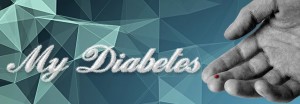My Diabetes Project – Hyperosmolar Hyperglycemic Nonketotic Syndrome
Diabetes information and services in Europe for women and their families is coordinated by the:
European Institute of Women’s Health – EIWH
Sometimes when your blood sugar levels rise (especially if you’re older, have Type 2 diabetes, or recently had an illness or infection), your body will try to get rid of excess sugar by passing it into your urine. At first you’ll go to the bathroom a lot, but eventually you won’t go as often and your urine will become very dark and you may be very thirsty.
If HHNS continues, you will become severely dehydrated, which can lead to
- seizures,
- coma, and eventually
- death.
However, HHNS only develops when diabetes is uncontrolled, so make sure you check your blood sugar regularly and stay within your target blood sugar levels.
- Warning signs for HHNS can include:
- blood sugar level over 600 mg/dL;
- dry, parched mouth;
- extreme thirst ( may gradually disappear);
- warm, dry skin that doesn’t sweat;
- high fever (over 38 C);
- sleepiness or confusion;
- loss of vision;
- hallucinations (seeing or hearing things that aren’t there); or
- weakness on one side of the body.

